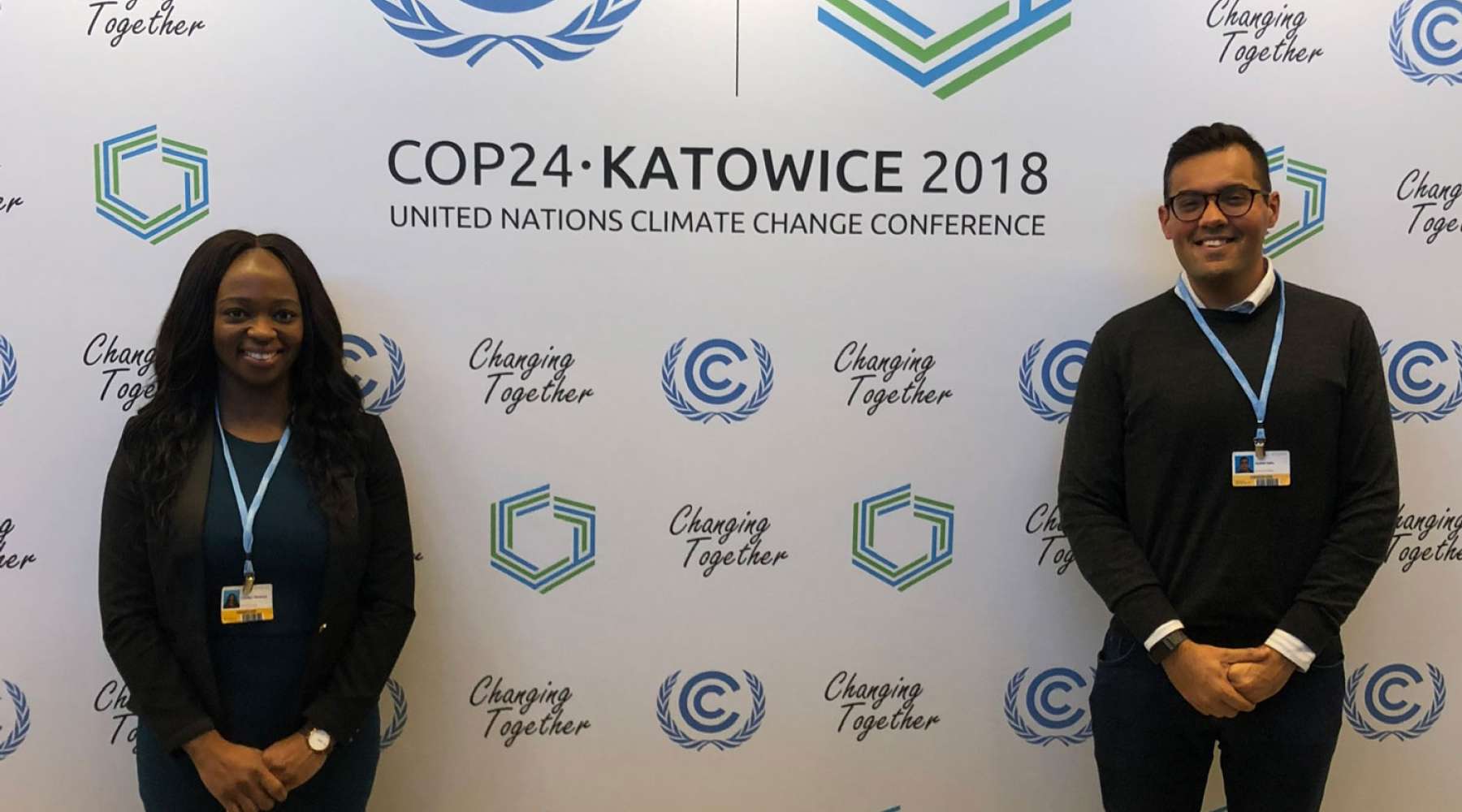
As a Tuck student, Dean Slaughter’s charge to demonstrate wise leadership and to better the world of business is one that becomes intimately familiar and comes to life early and all through the Tuck experience. Outside of the required ethics and social responsibility curricula, Tuck students have several opportunities to reflect on the responsibility that business leaders share in solving society’s most difficult problems. For me, one of such experiences was the opportunity to represent Tuck and Dartmouth College as a delegate at the 24th Conference of the Parties to the United Nations Framework Convention on Climate Change, known more commonly as COP24. The goal of the conference was to determine the rules for implementing the 2015 Paris Climate Agreement and to clarify the role of represented countries in mitigating climate change through reduction in emissions.
Sponsored by two centers at Tuck, the Revers Center for Energy and the Center for Business, Government and Society, five representatives from Tuck arrived in Katowice, Poland in December 2018, to join the conversation alongside tens of thousands of other delegates from around the world. Over the course of the two weeks, delegates discussed ways to address the pressing issue of climate change during panel discussions, breakout sessions, negotiation talks, and other events. I had the opportunity to listen to top United Nations officials, scientists, environmental ministers, and heads of states, including United Nations Secretary General, Antonio Guterres; Prime Minister of Poland, Mateusz Morawiecki; first African American woman astronaut in space Dr. Mae Jemison; and former Governor of California, Arnold Schwarzenegger.
Over and over again, we heard the argument for why increased investment in clean technologies and a commitment to improving sustainability was not only the right thing for businesses to do from a moral standpoint, but also from an economic perspective. The adverse effects of human behavior on the environment have become all too familiar as the news cycle seems to be in constant supply of the resulting catastrophes. All around the world, food shortages, droughts, rising sea levels, and extreme weather events are significantly impacting lives of people with a reach that moves closer to home year after year. The urgency in addressing the issue of climate change is one that current and future business leaders need to respond to immediately.
From Katowice to Barcelona, where I am currently on a term abroad at IESE Business School, I reflect on how truly personal, connected and transformative my Tuck MBA journey has been. The opportunity to attend COP24 has left an impact on my mental framework as a future business leader with a pressing charge to improve the world at large by improving the world of business.